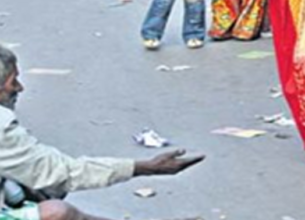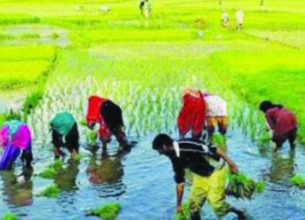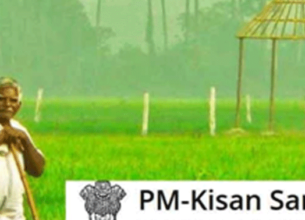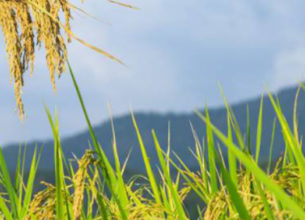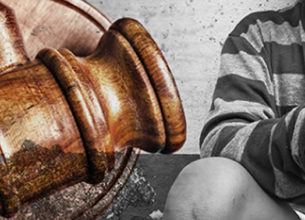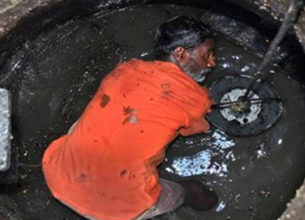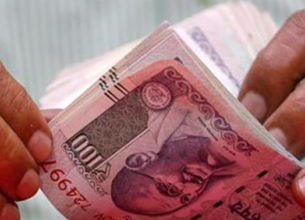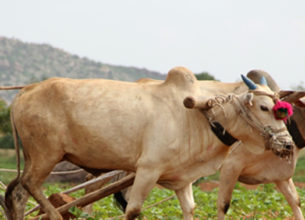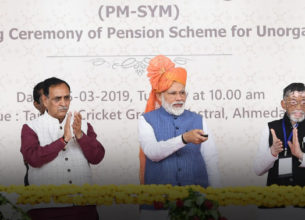THE TRANSGENDER PERSONS (PROTECTION OF RIGHTS) BILL, 2019
04, Dec 2019
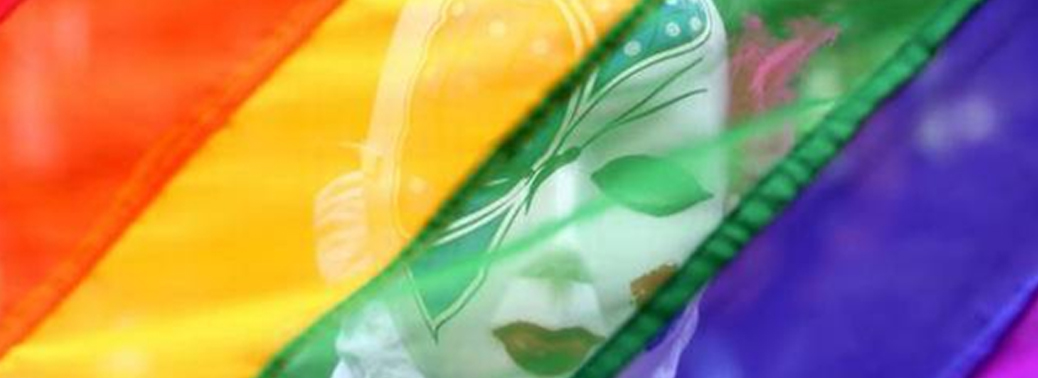
Why in News?
- Rajya Sabha has recently passed “The Transgender Persons (Protection of Rights) Bill, 2019” without any Amendments.
About Transgenders:
- Transgender community includes Hijras, Eunuchs, Kothis, Aravanis, Jogappas, ShivShakthis etc., who have been a part of Indian society for centuries. The Vedic and Puranic literatures mention “tritiyaprakriti” meaning the third gender.
- Though most of the eunuchs seen today are begging at traffic signals or during weddings, they were a respected lot during the Mughal rule in the Medieval India.
- During the British rule, they were denied civil rights and were considered a separate caste or tribe who did kidnapping and castration of children and danced and dressed?like women.
- In Post-Independence Era, the Act was repealed but its legacy continues and many local laws reflected the prejudicial attitudes against certain tribes, including Hijras.
- In contemporary times, the LGBTQ group is referred to as the “lesbian, gay, bisexual, transgender, and queer community” which includes those with gender dysphoria and different sexual orientations.
Sex (vs) Gender:
- It also needs to be understood that “Sex” and “Gender” are different things. One may be born as Male (sex) but may identify himself like a Woman (Gender). So “Sex” is biological and “Gender” is the real sexual identity of a person.
Transgenders in India:
- According to the 2011 Census, the number of persons who do not identify as ‘male’ or ‘female’ but as ‘other’ stands at 4,87,803 (i.e. 0.04% of the total population)
- Indian census has never recognized the third gender, i.e., transgender while collecting census data for years.
- The 2011 census also reported 55,000 children as transgender identified by their parents.
About Transgender Persons (Protection of Rights) Bill, 2019:
Key Provisions of the Bill:
1. Definition of a Transgender Person:The Bill defines a transgender person as one whose gender does not match the gender assigned at birth. It includes trans-men and trans-women, persons with intersex variations, gender-queers, and persons with socio-cultural identities, such as kinnar and hijra.Intersex variations are defined to mean a person who at birth shows variation in his or her primary sexual characteristics, external genitalia, chromosomes, or hormones from the normative standard of male or female body.
2.Certificate of identity for a Transgender Person:A transgender person may make an application to the District Magistrate for a certificate of identity, indicating the gender as ‘transgender’. A revised certificate may be obtained only if the individual undergoes surgery to change their gender either as a male or a female.
3.Prohibition against Discrimination:The Bill prohibits the discrimination against a transgender person, including denial of service or unfair treatment in relation to:(i) education; (ii) employment; (iii) healthcare; (iv) access to, or enjoyment of goods, facilities, opportunities available to the public; (v) right to movement; (vi) right to reside, rent, or otherwise occupy property; (vii) opportunity to hold public or private office; and (viii) access to a government or private establishment in whose care or custody a transgender person is.
4.National Council for Transgender persons (NCT):The NCT will consist of:
(i) Union Minister for Social Justice (Chairperson); (ii) Minister of State for Social Justice (Vice- Chairperson); (iii) Secretary of the Ministry of Social Justice; (iv)one representative from ministries including Health, Home Affairs, and Human Resources Development. Other members include representatives of the NITI Aayog, and the National Human Rights Commission. State governments will also be represented. The Council will also consist of five members from the transgender community and five experts from non-governmental organisations.
5.Right of Residence: Every transgender person shall have a right to reside and be included in his household.
6.Employment:No government or private entity can discriminate against a transgender person in employment matters, including Recruitment, and Promotion.
7.Education: Educational institutions funded or recognised by the Relevant Government shall provide inclusive education, sports and recreational facilities for Transgender Persons, without Discrimination.
8.Health Care:The government must take steps to provide health facilities to transgender persons including separate HIV surveillance centres, and sex reassignment surgeries. The government shall review medical curriculum to address health issues of transgender persons, and provide comprehensive medical insurance schemes for them.
9.Welfare Measures by the Government:The Bill states that the relevant government will take measures to ensure the full inclusion and participation of transgender persons in society.
10.Offences and Penalties: The Bill recognizes the following offences against transgender persons: (i) forced or bonded labour (excluding compulsory government service for public purposes), (ii) denial of use of public places, (iii) removal from household, and village, (iv) physical, sexual, verbal, emotional or economic abuse. Penalties for these offences vary between six months and two years, and a fine.
Arunkumar (vs) The Inspector General of Registration case:
- In April 2019, the Madurai Bench of the Madras High Court delivered a historic judgment in Arunkumar v. The Inspector General of Registration. This judgment marks the beginning of a normative journey of intersex human rights in India. The court took up the issue of validity of consent given on behalf of intersex infants for undergoing sex selective surgeries.
- It held that the consent of the parent cannot be considered as the consent of the child. Hence, such surgeries should be prohibited.
- This is a momentous judgment as it recognises the consent rights of intersex children and the right to bodily integrity.
Major Concerns in the Bill:
- Definition:The definition of ‘transgender persons’ in the Bill is at variance with the definitions recognised by international bodies and experts in India. The terms, ‘trans-men’, ‘trans-women’, persons with ‘intersex variations’ and ‘gender-queers’ have not been defined.
- Self-Identity:Even though the bill says that a transgender person “shall have a right to self-perceived gender identity,” its language could be interpreted to mean transgender people are required to have certain surgeries before legally changing their gender.
- Privacy: A District Screening Committee would issue a certificate of identity to recognise transgender persons. This is also a violation of Fundamental Right to Privacy.
- Existing Framework: Certain criminal and personal laws that are currently in force only recognise the genders of ‘man’ and ‘woman’. It is unclear how such laws would apply to transgender persons who may not identify with either of the Two Genders.
Other Issues to be considered:
- If a transgender person is denied a Certificate of Identity, the Bill does not provide a mechanism for appeal or review of such decision of the District Screening Committee.
- The bill is also silent on whether a trans-person who holds a male or female gender certificate will have access to government welfare schemes and programs meant for transgender people.
- The Bill is silent on granting reservations to transgender persons.
- The Bill does not mention any punishments for rape or sexual assault of transgender persons as according to Sections 375 and 376 of the Indian Penal Code, rape is only when a man forcefully enters a woman.
Key Recommendations towards the Bill:
- 1.The title of the Bill itself is exclusionary as it does not accommodate all persons whose legal protection it seeks to recognise. Therefore, the definition should highlight this distinction between transgender persons and intersex persons enabling them to exercise the rights which they are entitled to.Parliament will be well-advised to consider changing the title of the Bill to Gender Identity, Gender Expression and Sex Characteristics (Protection of Rights) Bill, 2019.
- 2.The Bill doesn’t say much about discrimination against intersex persons. Intersex conditions are termed in derogatory terms even by medical professionals. To address this, the Bill should have included a provision directing medical professionals to ensure that intersex traits are not characterised as “disorders of sex development”.Intersex traits should not be considered as genetic defects/ disorders, and terms like ‘gender dysphoria’ should be used to characterise them.
- 3.The bill should be revised to emphasize training teachers to help them adopt inclusive teaching methods to ensure that children are not harassed or discriminated against by staff or other children.



